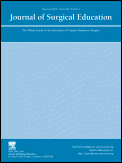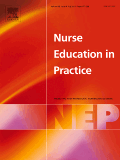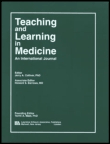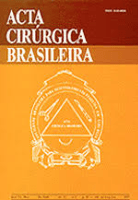
Journal of Surgical Education
Scope & Guideline
Exploring the intersection of surgery and pedagogical excellence.
Introduction
Aims and Scopes
- Surgical Training and Education Models:
The journal focuses on various models of surgical training, including traditional, competency-based, and simulation-based approaches, providing insights into their effectiveness and implementation. - Assessment and Evaluation in Surgical Education:
Research on assessment methods, including formative and summative evaluations, competency-based assessments, and the use of innovative technologies, is a core area of interest. - Well-being and Resilience of Surgical Trainees:
The journal addresses the mental health and well-being of surgical residents, exploring interventions aimed at reducing burnout and enhancing resilience within surgical training. - Diversity, Equity, and Inclusion in Surgical Education:
There is a strong emphasis on increasing diversity and addressing equity issues within surgical education, including the recruitment of underrepresented minorities and gender disparities. - Technological Innovations in Surgical Education:
The incorporation of technology, such as virtual reality, artificial intelligence, and digital learning tools, is a prominent focus, examining their impact on surgical training and education. - Curriculum Development and Educational Strategies:
The journal promotes research on the development and evaluation of curricula designed to improve surgical education, including the integration of new teaching methodologies and best practices. - Interprofessional Education and Teamwork:
The importance of teamwork and interprofessional collaboration in surgical settings is explored, highlighting how these elements contribute to improved surgical outcomes and education.
Trending and Emerging
- Mental Health Initiatives:
There is a growing trend towards addressing mental health and wellness for surgical trainees, with research focusing on the development and evaluation of support programs and interventions. - Simulation-Based Learning:
The use of simulation as a central component of surgical training is on the rise, with a focus on developing high-fidelity simulations and evaluating their impact on trainee performance. - Diversity and Inclusion Efforts:
Research exploring diversity, equity, and inclusion within surgical residency programs is increasingly prominent, as institutions strive to create more equitable training environments. - Technology-Enhanced Learning:
The integration of technology into surgical education, including virtual reality, online learning platforms, and artificial intelligence, is a rapidly growing area of interest, with research investigating their effectiveness and applications. - Competency-Based Education:
There is a notable shift towards competency-based educational models, emphasizing individualized training paths and assessments that align with the specific needs of surgical trainees. - Interprofessional Education:
The trend towards interprofessional education is gaining momentum, with research focusing on collaborative training models that prepare surgical residents to work effectively within multidisciplinary teams.
Declining or Waning
- Traditional Lecture-Based Learning:
There has been a noticeable decrease in research focused on traditional lecture formats, as more innovative and interactive teaching methods gain traction in surgical education. - Rigid Training Structures:
Research examining strict, hierarchical training structures is declining, as the focus shifts towards more flexible, competency-based frameworks that promote autonomy and individualized learning. - Sole Focus on Technical Skills:
The emphasis on purely technical skills training is waning, with increasing recognition of the importance of non-technical skills, such as communication and leadership, in surgical education. - Standardized Assessment Tools:
The use of one-size-fits-all standardized assessments is decreasing, as there is a growing preference for personalized and context-specific evaluation methods that better reflect individual trainee capabilities. - Isolation of Surgical Education Research:
There is a decline in research that isolates surgical education from broader medical education trends, as interdisciplinary approaches and integration with other healthcare fields become more valued.
Similar Journals

Nurse Education in Practice
Empowering educators to elevate nursing curricula.Nurse Education in Practice is a preeminent journal published by ELSEVIER SCI LTD that focuses on advancing the field of nursing education through rigorous research and innovative practice. With an impressive impact factor and positioned in Q1 in Education and Nursing, this journal serves as a vital resource for educators, researchers, and practitioners dedicated to enhancing nursing curricula and improving health outcomes. It ranks highly in both the Nursing and Social Sciences - Education categories, reflecting its influence and relevance in the academic community. By providing a platform for the exchange of knowledge and promoting evidence-based practices, Nurse Education in Practice plays a critical role in shaping the future of nursing education. The journal's commitment to fostering scholarly dialogue and improving nursing training ensures that it remains an essential read for those invested in the evolution of healthcare education.

Pegem Egitim ve Ogretim Dergisi
Nurturing Knowledge for the Evolving ClassroomPegem Egitim ve Ogretim Dergisi is a prominent academic journal published by PEGEM AKAD YAYINCILIK EGITIM DANISMANLIK HIZMETLERI TIC LTD STI, specializing in the field of education. Based in Turkey, this journal offers a platform for scholarly discourse, catering to both emerging and established researchers in the educational domain. With its ISSN 2148-239X, the journal aims to provide insights into contemporary educational practices, pedagogical innovations, and research findings that influence teaching and learning. Although classified in the Q4 quartile of the education category as of 2022 and achieving a Scopus rank of 1178 out of 1469, it remains a valuable resource for practitioners and academics alike. The journal ceased Scopus coverage in 2023, yet it continues to be a relevant outlet for educational research in Turkey and beyond. While it operates under traditional access models, the potential for collaborative research and knowledge sharing makes it a noteworthy choice for those engaged in the evolving landscape of education.

TEACHING AND LEARNING IN MEDICINE
Transforming healthcare training with cutting-edge insights.TEACHING AND LEARNING IN MEDICINE is a distinguished academic journal, published by Routledge Journals, Taylor & Francis Ltd, focusing on the critical intersection of education and medical training. Since its inception in 1989, this journal has become a vital resource for researchers, practitioners, and educators, showcasing cutting-edge research and innovative practices that enhance pedagogical approaches in medicine. With an impact factor reflective of its high influence in the field, it has earned a notable Q1 ranking in both the Education and Miscellaneous Medicine categories for 2023. Additionally, its impressive Scopus rankings highlight its significance within the medical and educational research communities. Although not an open access journal, TEACHING AND LEARNING IN MEDICINE provides valuable insights that contribute to the advancement of medical education and the improvement of learning outcomes, ensuring that readers stay at the forefront of pedagogical developments. With a commitment to scholarly rigor and practical relevance, this journal is an essential reading for anyone dedicated to elevating educational standards in the healthcare profession.

MEDICAL TEACHER
Transforming the future of healthcare training.MEDICAL TEACHER, published by Taylor & Francis Ltd, is an esteemed journal in the fields of Education and Medicine, recognized for its pivotal role in advancing medical education. With an impressive impact factor, this journal has consistently secured a top-tier position, being classified in Q1 for both Education and Miscellaneous Medicine as of 2023. Established in 1979, it offers a platform for innovative research, critical reviews, and insightful discussions that inform and influence pedagogical practices in medical training globally. Researchers and professionals can benefit from the journal’s comprehensive coverage, which includes empirical research, theoretical discussions, and educational strategies aimed at improving the quality of medical education. As a renowned resource for educators, clinicians, and policymakers, MEDICAL TEACHER continues to shape the future of healthcare education, making it an essential reading for anyone involved in the medical training landscape.

AEM Education and Training
Empowering future leaders in emergency medicine and nursing.AEM Education and Training is a leading peer-reviewed journal published by WILEY, focusing on the intersection of education, emergency medicine, and nursing, with a commitment to advancing knowledge and practice in these critical fields. Launched in 2017, this journal has quickly established itself as a key resource, as evidenced by its impressive Q2 ranking in both Education and Emergency Medicine, and a top-tier Q1 ranking in Emergency Nursing as of 2023. The journal aims to disseminate high-quality research that enriches educational practices and improves clinical outcomes, serving as a vital platform for healthcare educators and practitioners. With the growing importance of effective training in emergency settings, AEM Education and Training plays an essential role in shaping future leaders in health education and patient care. Researchers, professionals, and students will find an array of insightful articles that address contemporary challenges and innovations in their fields. Although currently not an open-access journal, its findings contribute significantly to the broader discourse in educational practices and emergency care.

Medical Science Educator
Pioneering research for the next generation of medical educators.Medical Science Educator, published by SpringerNature, is an esteemed journal committed to advancing the intersection of educational methodologies and medical science. With a significant impact in its field, this journal holds a Q2 ranking in both Education and Medicine (miscellaneous) categories as of 2023, reflecting its dedication to high-quality research and scholarly dialogue. Operating in a digital format, the journal uniquely facilitates access to pivotal studies from its inception in 2011 until 2024, fostering innovation in medical education. The latest rankings highlight its credibility, placing it at the 63rd percentile in Social Sciences - Education and the 56th percentile in Medicine - Medicine (miscellaneous) within Scopus. This platform serves as an invaluable resource for educators, researchers, and practitioners aiming to enhance teaching practices and shape the future of medical education.

CANADIAN JOURNAL OF SURGERY
Pioneering Innovations in Medicine and SurgeryCanadian Journal of Surgery is a prestigious peer-reviewed publication that has been a cornerstone in the fields of medicine and surgery since its inception in 1957. Published by the CMA - Canadian Medical Association, this journal is essential for researchers, clinicians, and medical students committed to advancing surgical practices and medical knowledge. With an impressive ranking within the Q2 category in both Medicine (miscellaneous) and Surgery categories for 2023, and an admirable Scopus rank of #193 out of 551 in its field, the journal continues to influence the trajectory of medical research and surgical innovation. Although it does not currently offer open access options, the Canadian Journal of Surgery emphasizes high-quality research dissemination and aims to foster dialogue and development in clinical practice. Its consistently updated content is vital for anyone seeking to remain at the forefront of surgical advancements and medical trends.

ATS Scholar
Fostering collaboration in critical care and education.ATS Scholar is a premier Open Access journal published by the American Thoracic Society, focusing on critical care, intensive care medicine, education, and pulmonary and respiratory medicine. Since its inception in 2020, the journal has quickly established itself as a vital resource for researchers and practitioners in these fields, earning recognition in the Q2 quartile for critical care and education categories, along with a Q3 ranking in neurology and pulmonary medicine, highlighting its broad interdisciplinary impact. With its commitment to disseminating high-quality, peer-reviewed research, ATS Scholar facilitates the sharing of innovative findings and educational advancements, serving as a platform for knowledge exchange among professionals. The journal's open access policy ensures that important research is readily available to all, fostering collaboration and continuous learning in the evolving landscape of healthcare.

Problems of Education in the 21st Century
Empowering Educators Through Research and Insight.Problems of Education in the 21st Century is a pivotal academic journal published by SCIENTIA SOCIALIS, focusing on the ever-evolving challenges and opportunities in the field of education. With its ISSN 1822-7864 and E-ISSN 2538-7111, the journal serves as an essential resource for researchers, educators, and policy makers interested in exploring contemporary educational issues, innovations, and practices. Although currently not indexed in Scopus, the journal has previously covered contributions between 2017 and 2019, providing a platform for critical dialogue in the field. Based in Lithuania, it emphasizes an open-access approach, fostering wide dissemination of research that informs educational advancements. With a Scopus rank in the 20th percentile within the Social Sciences and Education category, the journal invites contributions that examine significant topics impacting education today, ensuring a broad spectrum of scholarly discussion aimed at enhancing teaching and learning experiences in the 21st century.

Acta Cirurgica Brasileira
Exploring the forefront of surgical techniques and knowledge.Acta Cirurgica Brasileira is a prestigious open-access journal dedicated to the field of Surgery, published by ACTA CIRURGICA BRASILEIRA since 1997. Based in Brazil, this journal aims to disseminate high-quality research and advancements in surgical techniques and practices, contributing significantly to both regional and global medical communities. With its commendable ranking of Q3 in Surgery and a Scopus rank placing it in the 50th percentile, Acta Cirurgica Brasileira stands as a vital resource for surgeons, researchers, and healthcare professionals seeking to enhance their knowledge and skills. The journal encompasses a diverse range of topics within surgery, from innovative techniques to clinical studies, making it essential for those engaged in surgical research and practice. As an open-access publication, it ensures that valuable insights and findings are readily available to a broad audience, promoting further research and collaboration in the field.